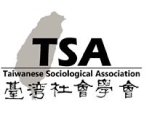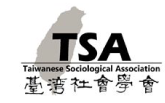主持人/ Chair:林祐聖
評論人/ Discussant:彭保羅
發表人/ Presenter:陳萬水
題目/ Title:社區營造公民電廠:對嘉義大林明華社區再生能源合作社的研究
摘要/ Abstract:
本文主旨在於探討什麼樣的再生能源發展方式,能使地方與綠能結合共存共榮,並將轉型過程中所帶來的利益留在社區。2019年嘉義縣大林鎮的明華社區成立了「責任有限大林公民電廠生產合作社」這是台灣第一個以社造脈絡為基礎建立的能源生產合作社,我想透過對明華社區發展協會參與者、地方組織的領導人或積極參與者、合作社成員及其他利益關係人、光電系統商等人的訪談。去了解他們如何發展出能源生產合作社,包括經歷了哪些過程與挑戰,社區的主要動能為何,過去的社區營造經驗提供了什麼條件與基礎? 為何選擇合作社的組織型態?
通過質性研究的深度訪談及參與觀察,本研究發現一、明華社區是一個以社區營造能源的案例,既有社區營造的動能以及「四腳督」(社區發展協會、村里長、老人會、廟宇)之間的通力合作提供了合作社得以成立的社會基礎;二、明華社區的能源合作社在上述脈絡中用自己的方式將合作社模式運作起來,它的經濟領域的能源民主也因此富有獨特的在地脈絡。
關鍵字:公民電廠、能源轉型、能源民主、能源合作社、社區營造
發表人/ Presenter:柯亮宇
題目/Title:馬祖難開講:在地公共討論發展的結構困境
摘要/Abstract:
社會資本論認為,日常活絡的社區參與及頻繁的公共討論,是俗民學習成為公民、以社會信任的基礎建立健全的公民社會,並穩固民主制度發展的關鍵。馬祖,一個距離台灣本島超過200公里、常住人口不及10000人的群島縣市,擁有緊密的人際關係、活絡的社區參與,卻難以形成就事論事、具課責性的公共討論空間。有研究指出,馬祖「極高密度與重疊度的人際網絡」造成公共場域受損。這形成一個經驗與理論謎團,本文欲回答「社會關係緊密」的特質如何反過來導致馬祖的公共討論受阻?結構條件限制公共討論的機制為何?在地公民又是如何應對?
本文透過橫跨半年的田野觀察,與十餘位具公共事務經驗的在地公民進行深度訪談,指出馬祖在人口與地理結構之下獨特的「五同關係」,加上過去嚴苛的軍事管制、地方自治層級過高等制度因素,形塑出關係至上、行事保守、功利主義的社會邏輯,讓重視公益性、就事論事的公共領域難以成型,反而在線上發展出一套匿名的、意識形態間互相攻訐的抱怨圈。
本文也指出世代因素的重要性。馬祖青年較具公民意識,卻面對來自親族與經濟結構條件的限制,最後多半只能在離開故鄉或與利益結構妥協之間選擇,讓公共討論的環境難以隨著軍事管制解除往正向發展。
關鍵字:馬祖、社會資本、日常社會參與、公共討論、關係優位
發表人/ Presenter:宋威穎(弘光科技大學通識教育中心專案助理教授)
題目/ Title:大學建置場域據點對利害關係人之影響:以港區舊城USR計畫為例
摘要/ Abstract:
台中梧棲區位於台中海線地區,早年是一漁村聚落,曾以沿近海漁業、農業及貿易聞名,隨著時代變遷,地方社區面臨社區高齡化與產業轉型等問題。近年雖有台中商港轉型、關連工業區發展、三井Outlet進駐、遠雄集團造鎮計畫等各類資源投入梧棲地方,但去脈絡化的資本挹注,卻也衝擊傳統地方社區既有生活型態與環境。位於海線的弘光科技大學,近積極在海線地區推動大學社會責任,為回應USR核心價值「人才培力」與「在地連結」,學校USR團隊搭配市府社會住宅政策,進駐梧棲三民好宅之社會服務站,希冀以梧棲好宅社會服務站作為學校在地社會實踐基地,導入學校專業知能與課程,回應地方需求,進而達到社區共榮、專業整合及公私協力之核心價值。
學校經營地方社會實踐據點已有一段時間,是否如進入場域前之期許,有效提升師生在地認同,以及居民對學校之認同,猶未可知。因此,本研究嘗試從參與式觀察、田野調查與訪談過程,了解不同利害關係人對大學建置社會實踐據點對地方之影響,並據以提出相應之建議,以作為後續推動大學推動社會責任實踐、促進地方發展之依據。
關鍵字:大學社會責任、梧棲社會服務站、利害關係人
發表人/ Presenter:
Tadeusz Rudek (Jagiellonian University)
Huang, Hui-Tzu (Academia Sinica)
題目/Title: Capturing (Un)Similar Perspectives. A Reflexive Public Reason for Energy Transition in Taiwan and China.
摘要/Abstract:
Today's societies, aware of the consequences of their actions, urgently need mechanisms to deal with uncertainty. At the same time, global crises such as climate change require a unified global response. This requires at least a shared understanding of a common future and how to achieve it, as well as tools for dealing with uncertainty. Understanding the diversity of these mechanisms remains critical to answering the question of whether a global energy transition is possible. Our paper responds to the call for a diversification of perspectives on energy transitions and contributes to a more nuanced understanding of the role of uncertainty and risk in public deliberation. In this paper, we use the model of reflexive public reason (RPR) to explore the mechanisms behind the governance of uncertainties related to the energy future.
As a key country in the global response to climate change, China offers a unique model for managing large-scale systemic socio-technical transitions. At the same time, Taiwan, the leading producer of semiconductors, plays a crucial role in securing the global energy transition. Its complicated geopolitical situation has placed it at the centre of international political disputes. In addition to natural hazards related to Taiwan's geology, social, economic and technological challenges, there are political tensions that make any transition path highly uncertain. As a result, decisions are made in a contingent and highly uncertain environment - making policy making akin to 'walking the crack'.
We show that the model of RPR, which includes reflection on sociotechnical imaginaries (STIs) and civic epistemologies, together with Beck's theory of reflexive modernization, is helpful in understanding how particular energy futures are imagined and selected. We also show the role that uncertainties and risks play in this process. As a result, we propose two models for dealing with uncertainties - Chinese and Taiwanese. The paper is based on three types of sources: legal documents and policies on energy transition issued between 2005 and 2020 in the PRC and Taiwan, 320 press articles, and 21 in-depth semi-structured interviews with SSH and STEM researchers from the PRC and Taiwan.


